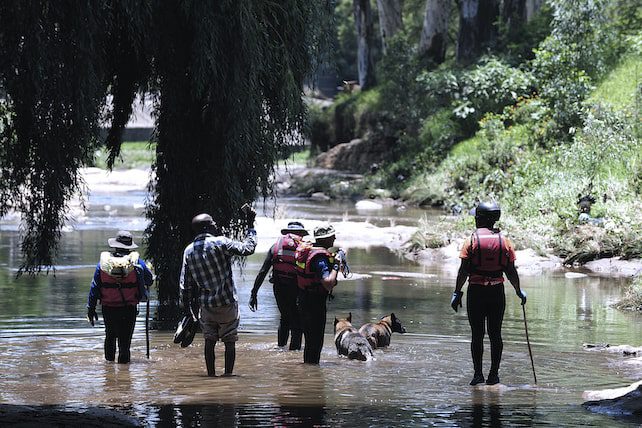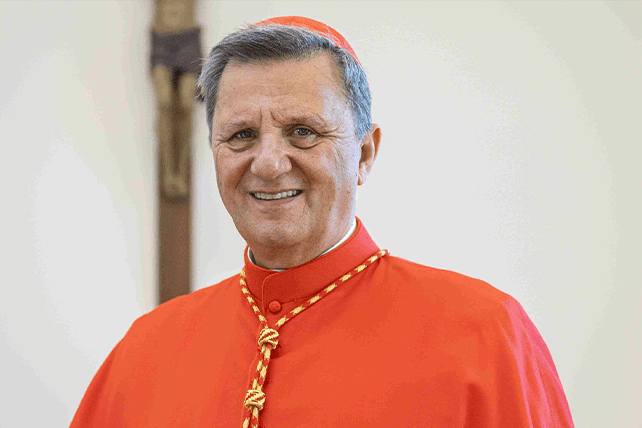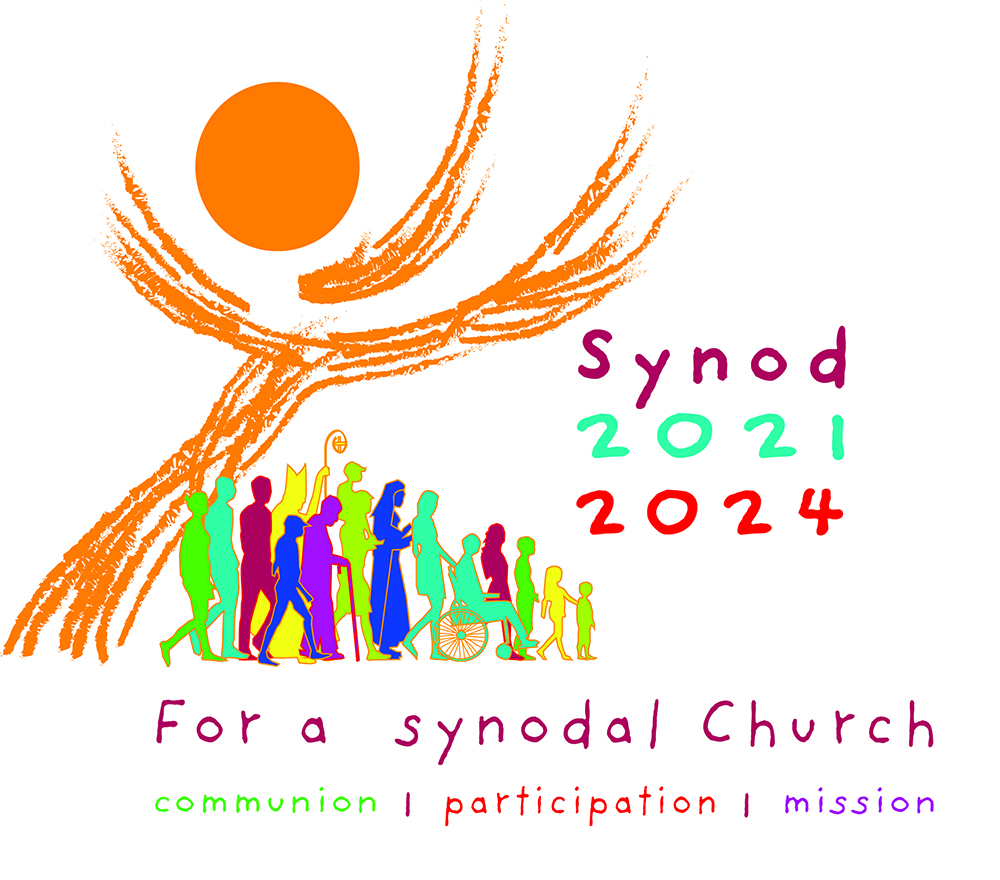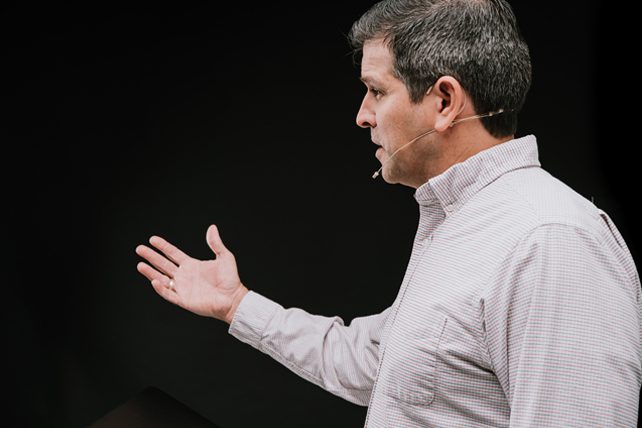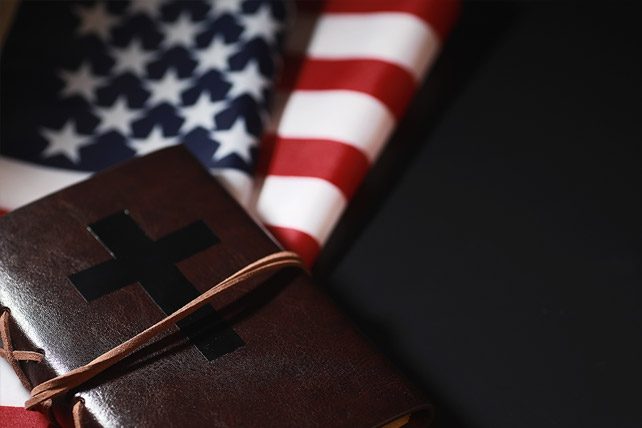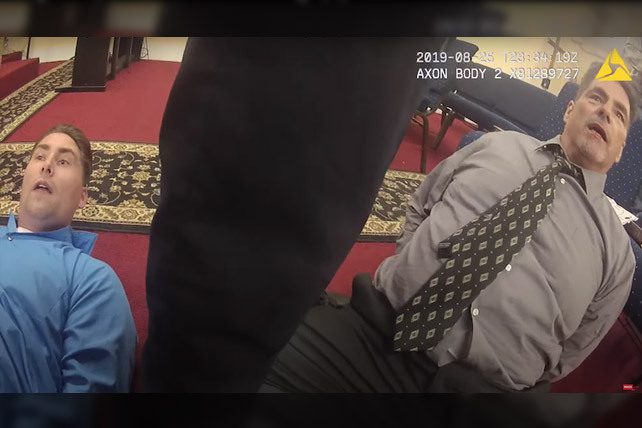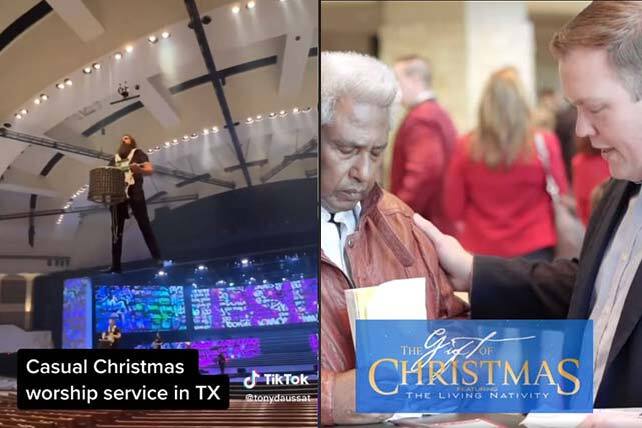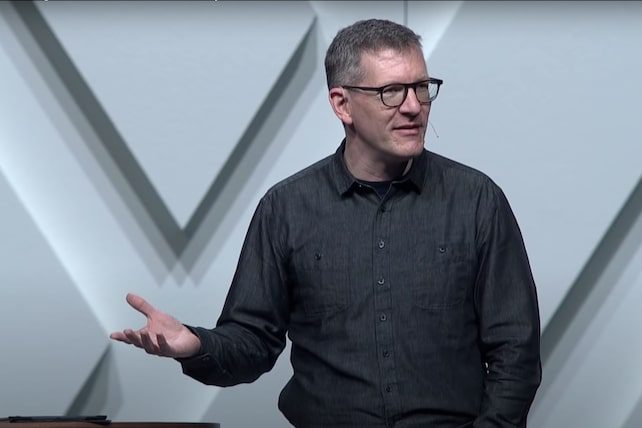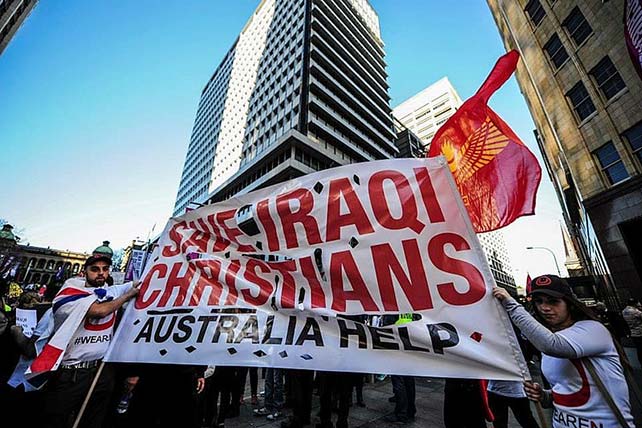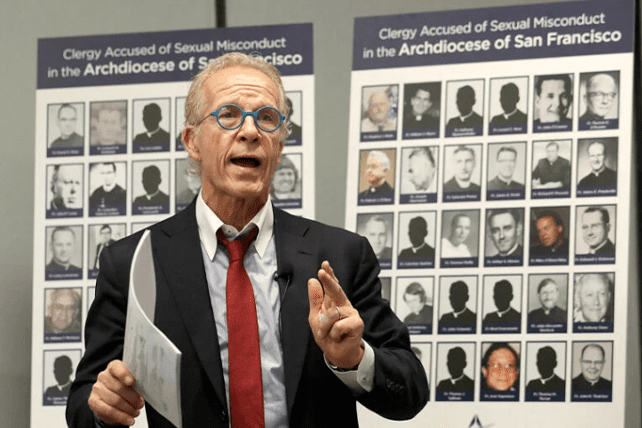UNITED NATIONS (AP) — Evidence collected in Iraq strengthens preliminary findings that Islamic State extremists committed crimes against humanity and war crimes against the Christian community after it seized about a third of the country in 2014, a U.N. investigative team said in a report circulated Thursday.
The report to the U.N. Security Council said crimes included forcibly transferring and persecuting Christians, seizing their property, engaging in sexual violence, enslavement and other “inhumane acts,” such as forced conversions and destruction of cultural and religious sites.
In addition, the team said it has identified leaders and prominent members of the Islamic State extremist group who participated in the attack and takeover of three predominantly Christian towns in the Nineveh plains north of Iraq’s second largest city, Mosul, in July and August 2014 — Hamdaniyah, Karamlays and Bartella. It also started collecting evidence on crimes committed against the Christian community in Mosul.
Islamic State fighters seized Iraqi cities and declared a self-styled caliphate in a large swath of territory in Syria and Iraq in 2014. The group was formally declared defeated in Iraq in 2017 following a three-year bloody battle that left tens of thousands dead and cities in ruins, but its sleeper cells continue to stage attacks in different parts of Iraq.
The 26-page report was submitted by the U.N. Investigative Team to Promote Accountability for Crimes committed by the Islamic State group, also known as IS, ISIL and Daesh.
The team updated its investigations into the extremists’ development and use of chemical and biological weapons, attacks on the Yazidi and Sunni communities, the mass execution of prisoners and detainees at Badush prison near Mosul in June 2014, and crimes in and around Tikrit.
In December 2021, the head of the U.N. team, Christian Ritscher, told the Security Council that Islamic State extremists committed crimes against humanity and war crimes at the prison in Badush.
In May 2021, Ritscher’s predecessor, Karim Khan, told the council that investigators had found “clear and compelling evidence” Islamic State extremists committed genocide against the Yazidi minority in 2014. He also said the militant group successfully developed chemical weapons and used mustard gas.
The new report said Ritscher’s team found evidence of payments to the families of Islamic State members killed deploying chemical weapons and records of payments for training senior operatives on the use of chemical weapons and devices to disperse such weapons.
The team said it is still assessing evidence of the use of agents.
“Evidence suggests that ISIL manufactured and produced chemical rockets and mortars, chemical ammunition for rocket-propelled grenades, chemical warheads and improvised explosive devices,” the report said. “Furthermore, the ISIL program involved the development, testing, weaponizations and deployment of a range of agents, including aluminum phosphide, chlorine, clostridium botulinum, cyanide, nicotine, ricin, and thallium sulphate.”
As for the destruction of cultural and religious sites by Islamic State fighters, the team said it expanded its investigations into different Iraqi communities and focused on several areas in Nineveh and Mosul.
This has led to a preliminary inventory of over 150 Kaka’i, Shabak and Shia Turkmen sites “suspected of having been destroyed by ISIL, along with enforced displacements, disappearances and sometimes killings of members of those communities,” the team said. It also identified places of worship and heritage sites in Tikrit that were severely damaged or destroyed by ISIL.
“The evidence obtained thus far shows that religious and cultural sites were either intentionally destroyed or taken over and occupied by ISIL, sometimes for military purposes, which resulted in their severe damage or destruction,” it said. “While the motives and methods adopted by ISIL are still being reviewed, it appears that explosives and heavy equipment were used to destroy many of the sites.”
With regard to attacks on the Yazidi community in Sinjar, the team said it has expanded the list of identified perpetrators to currently include the names of 2,181 individuals, including 156 foreign fighters.


